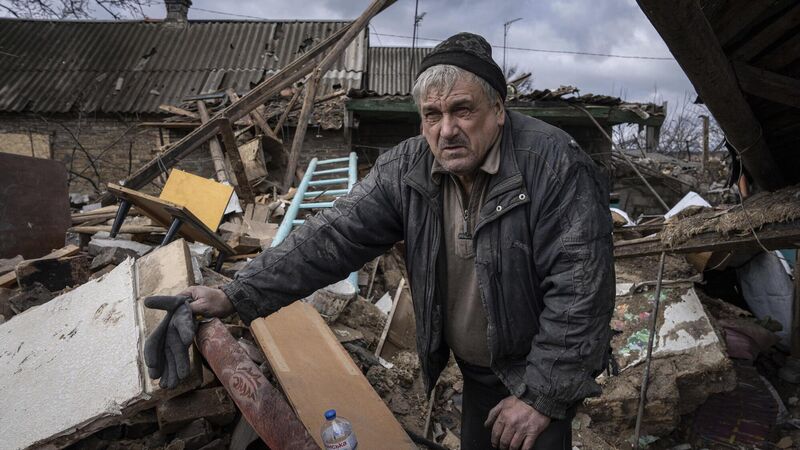James Sharkey: All avenues for a peaceful end to war in Ukraine must be explored

Mykola Volenshak checks his house that was destroyed by a Russian rocket as he tries to find documents under the rubble in Maxymilianivka village in Ukraine on Tuesday. Picture: Evgeniy Maloletka/AP
'All we are saying is give peace a chance.’
This plaintive chant by John Lennon and Yoko Ono in 1969 became the rallying cry for a generation protesting the horrors of the Vietnam War.
Already a subscriber? Sign in
You have reached your article limit.
Subscribe to access all of the Irish Examiner.
Annual €130 €80
Best value
Monthly €12€6 / month
Introductory offers for new customers. Annual billed once for first year. Renews at €130. Monthly initial discount (first 3 months) billed monthly, then €12 a month. Ts&Cs apply.
CONNECT WITH US TODAY
Be the first to know the latest news and updates
















